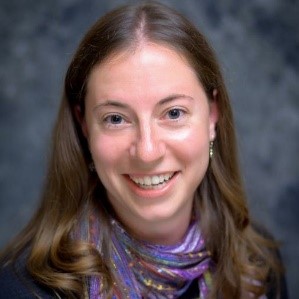How to Respond to Death
I don’t like death. Two and a half years ago, we put our 14-year-old dachshund, Wiggles, to sleep. She was in a lot of pain. She could hardly walk. Wiggles had helped us raise our kids.
The process of putting her down was very kind. We got to say good-bye. We held her and cried. They gave her a shot. It was painless, and she was gone. We all wept as we left the vet. I can feel the grief of that moment and the loss of her little presence as I write this.
This morning I talked on the phone with my 90-year-old mom. She is an amazing woman. She and my 98-year-old dad live in their own home, take care of themselves, drive, shop and engage often with their children and grandchildren. They know and I know that death is coming.
We talk about it some. Not too deeply. But it looms as something that will be both sad and a relief. They live with a lot of pain. Their friends are mostly gone. They are surrounded by family that loves them. But their bodies don’t work like they used to. My dad played tennis into his early 90’s. He sure can’t do that now. Life changes and death looks different.
I have been to a number of funerals in the last few years, many of them parents of my friends. For some of them, death was a mercy. Their lives had become too difficult, marred by pain or loss of memory and faculties. For others, even at a later age, there was real loss. It felt like too soon.
As I face death in both of these situations, I can’t help but ponder my own. I am older than my dad was when Lynne and I got married. My children are adults now, grown and gone. My friends and I too often find ourselves talking about aches and pains and doctor’s visits. We laugh about not being able to run as far or lift as much or jump as high (not really – no more jumping for me!). But we secretly grieve.
Death feels less like an abrupt change, it seems more of the process now. I want to finish strong and I am trying to figure out what that looks like as we, as I (I would rather write “we” than “I” – hmmmm) get close, certainly closer than ever before.
As I get older, I find myself more grateful for what is here – for people that I love, for meaningful work, for blue skies and gentle breezes and putts that go in. The riches of life mean more than ever. And that makes thinking about death a sad experience. I don’t want this to end. I don’t want to leave my kids and my friends. I don’t want to leave this beautiful world. It brings sadness.
As I visit with friends who have lost loved ones, I always hear sadness. Whether the relationship was wonderful or disappointing, there is loss – of what was, or what could have been. I feel that too. I think I will miss being here, being “with”, a part of this life.

But there is also a growing awareness in me that this life cannot be what I long for it to be. I was built for something more complete, more full, more pain-free, more…. And it won’t happen here. That too could lead to sadness.
But the Bible is full of hope of another life that follows this one. It is a life with Jesus and His people. It is a new heaven and a new earth. It is pain-free and more. Relationships will be without loss or grief or disappointment or shame or fear. Work will be meaningful and with no “thorns and thistles.” Yards won’t have weeds. We won’t talk about doctor’s appointments or aches and pains. And all of my putts will drop!
The problem is that I can’t see that world with my eyes. I/we have to take it by faith. If in fact it truly exists, then life just gets better with death. Death really is a door to real life. This life is just a shadow of what we somehow know it should be – and will be. The problem is that I can’t see it. And that leaves me believing or trying to believe, trusting or trying to trust in something that I can’t know or test until it is too late and it isn’t a test. It’s the real thing.
And that hope for this new life rests on the resurrection of Jesus. If He really did defeat death, and did so on our behalf, then the life He experiences today with the Father is the life He will share with us. His resurrection and eternal life is the guarantee that I will get mine, with Him and those who entrust themselves to Him, forever and ever. The world that I find myself longing for in this life will be actualized in the next. And that makes me very hopeful. Very hopeful.

Palmer Trice is an ordained Presbyterian minister. He is married to Lynne, has three children and has been in Charlotte since 1979. In his spare time, Palmer enjoys golf, tennis, walking and reading.







